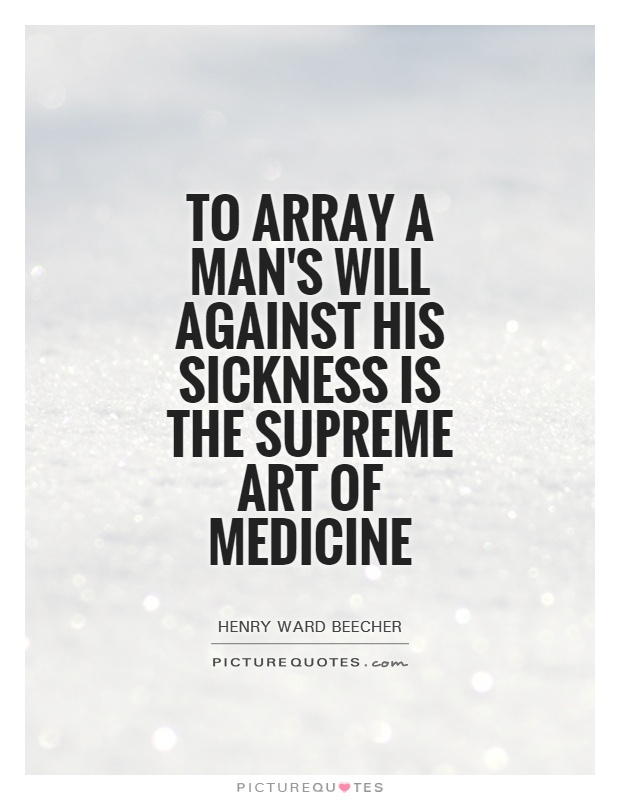To array a man's will against his sickness is the supreme art of medicine

To array a man's will against his sickness is the supreme art of medicine
Henry Ward Beecher, a prominent 19th-century clergyman, once said, “To array a man's will against his sickness is the supreme art of medicine.” This powerful statement speaks to the importance of not only treating the physical symptoms of illness but also addressing the mental and emotional aspects of a patient's well-being. Beecher understood that a person's mindset and attitude can play a significant role in their ability to overcome sickness and regain their health.In the context of Beecher's quote, it is clear that he believed in the power of the mind to influence the body's ability to heal. By encouraging patients to have a positive outlook and a strong will to fight their illness, doctors and caregivers can help them overcome their sickness and improve their overall well-being. This approach to medicine emphasizes the importance of treating the whole person, not just their physical symptoms.
Beecher's words also highlight the importance of the doctor-patient relationship in the healing process. By working together to align the patient's will with their treatment plan, doctors can empower their patients to take an active role in their own recovery. This collaborative approach to healthcare can lead to better outcomes and a greater sense of control for the patient.
Furthermore, Beecher's quote underscores the idea that medicine is as much an art as it is a science. While medical treatments and interventions are important, the ability to inspire hope and instill a sense of determination in patients is equally crucial. By recognizing the power of the human spirit in the healing process, healthcare providers can better support their patients on their journey to wellness.












 Friendship Quotes
Friendship Quotes Love Quotes
Love Quotes Life Quotes
Life Quotes Funny Quotes
Funny Quotes Motivational Quotes
Motivational Quotes Inspirational Quotes
Inspirational Quotes